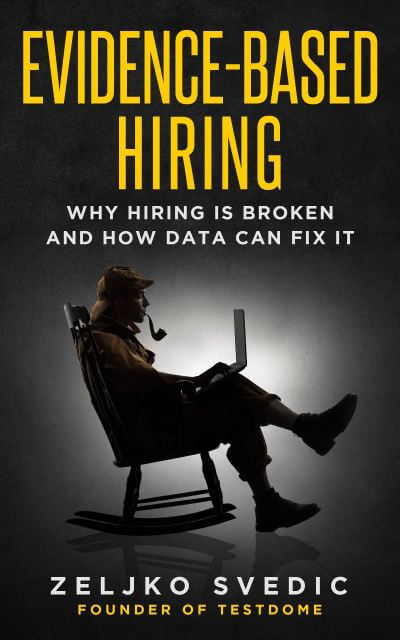CHAPTER 8: Conclusion
In my modest opinion, we don’t live in a world of equal opportunities.
To understand why I think this and why I wrote this book, you need to know a little about my background. I grew up in a small, poor, provincial city in Croatia. I didn’t attend the eighth grade of primary school—because, in 1993, nobody did. Croatia had just separated from Yugoslavia and there was a civil war. My primary school was bombed1. Every second day, we sat in an air shelter instead of a classroom. The war stopped by the time I enrolled in high-school, but my education was not looking bright. The average monthly wage at that time was $1402, so it took a year to convince my parents to buy my brother and me a computer. We had heard of the Internet, but there was no such luxury in my city.
Then, one day, I got a large package. A state agency responsible for youth computer science education had selected me for a programming competition. I got a photocopy of a photocopy of an American book about algorithms. I read page after page and tried to use my new knowledge to solve the tasks.
I went to the state competition and was surprised by the level of transparency. To prevent professors leaking problems to their students in advance, all tasks came in sealed envelopes that are opened at the moment the competition starts. To ensure evaluations are fair, an evaluator program connected to students’ computers and calculated the scores. When the competition finished, we all went outside the room while the evaluator computer calculated and printed the results. When I have finally read the printed results, my name was not in the middle or at the bottom of the list. It was at the top. The evaluator computer had decided that I was the best young programmer in the country, for that year.
A few months later, there was a summer computer science camp. The president of the state agency called me and asked if I want to give a five-day course on programming to younger students. “You won, so you obviously know something you can share with younger folks,” he said. I was surprised. I was just a high school student with no experience, and no diploma. I won a contest that, in most domains, someone like me would never even have been invited to enter. Now, I was allowed to teach purely because I’d proven I knew the topic.
Never again in my life have I experienced such a level of transparency and equality as in those computer science competitions. I’ve never forgotten them and it’s a mystery to me why the world doesn’t run on similar principles. I got lucky, but so many others don’t. If I hadn’t been selected for competition and sent photocopied books, my career would go in a very different direction.
Today, identical twins separated at birth and sent to different countries still have completely different chances of professional success. In 2017, average monthly wage was 23 times higher in Switzerland than in the Ukraine3. Both have similar climates, population, rich history, and are just two hours flight time from each other. Yet, because of language, culture, and visa requirements, it is extremely hard even for a talented Ukrainian to go to a Swiss university or get a Swiss job.
It has always been a matter of luck where you are born and, until recently, there was not much you could do about it. Slowly, the world is changing. The Internet has changed how we study, find jobs, and work. Because there are no borders online, geography is just not what it used to be. In 2015, 20-25% of the workforce were teleworking4 and freelancers made up 35% of the U.S. workforce5. In 2017, 81 million students studied online6. While the numbers are still small, the trends are obvious. Today, motivated individuals need only a laptop to get an education and to enter the workforce.
Businesses shouldn’t care how someone looks, where they live, what school they attended, and with what accent they speak. They should only care what they can do, and for what price. Outliers don’t want to be judged by their appearance, they want to be judged by their work. Being fair doesn’t cost companies anything—quite the contrary, it makes them money. The truth is that the best employees are outliers, and this book tries to give you the tools to find them.
